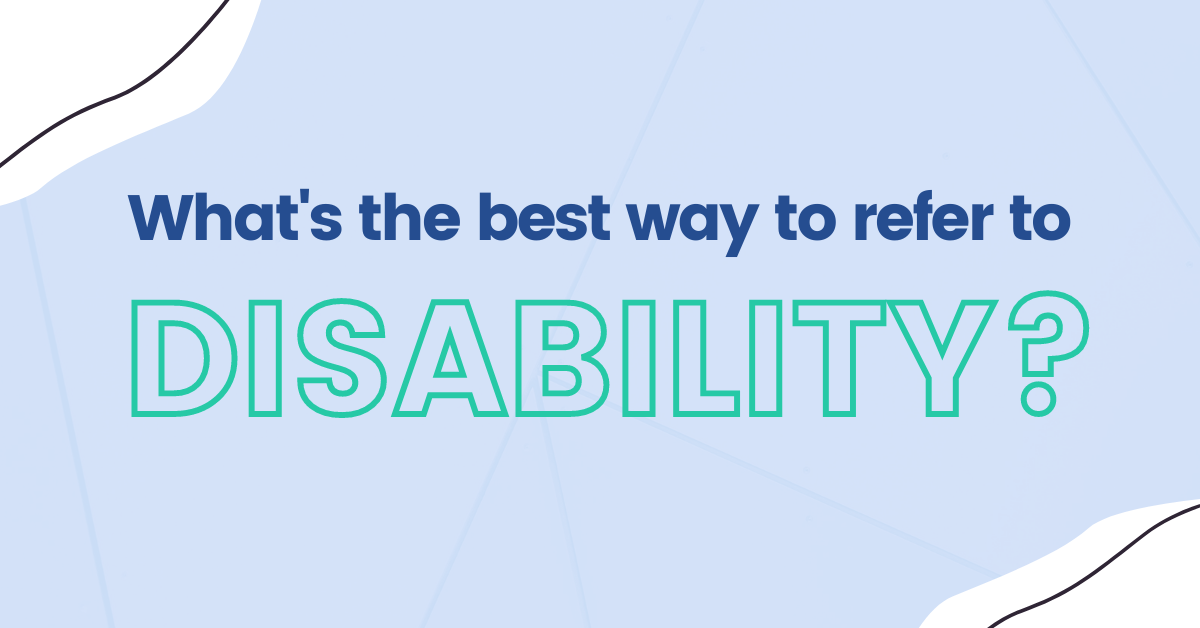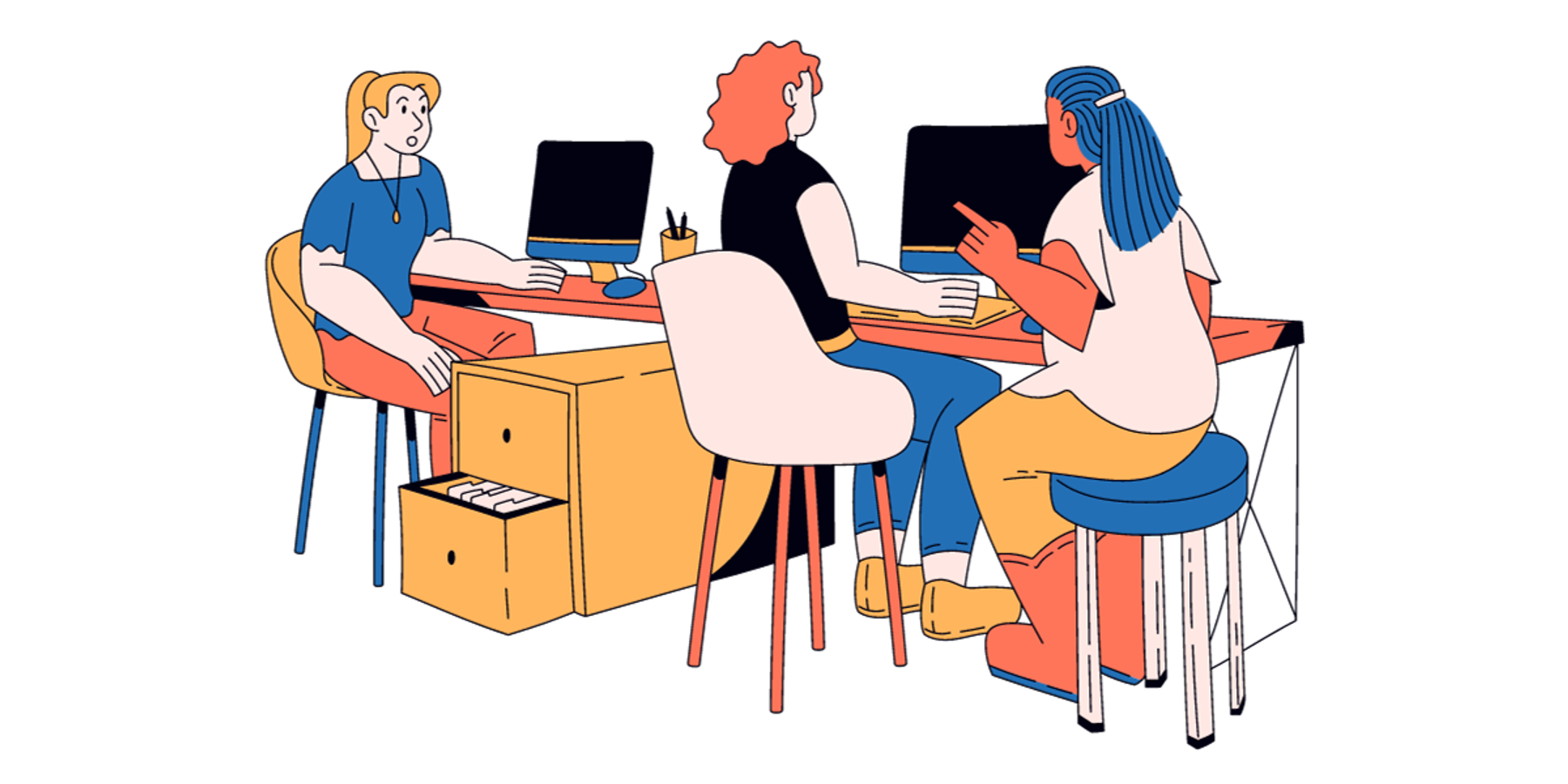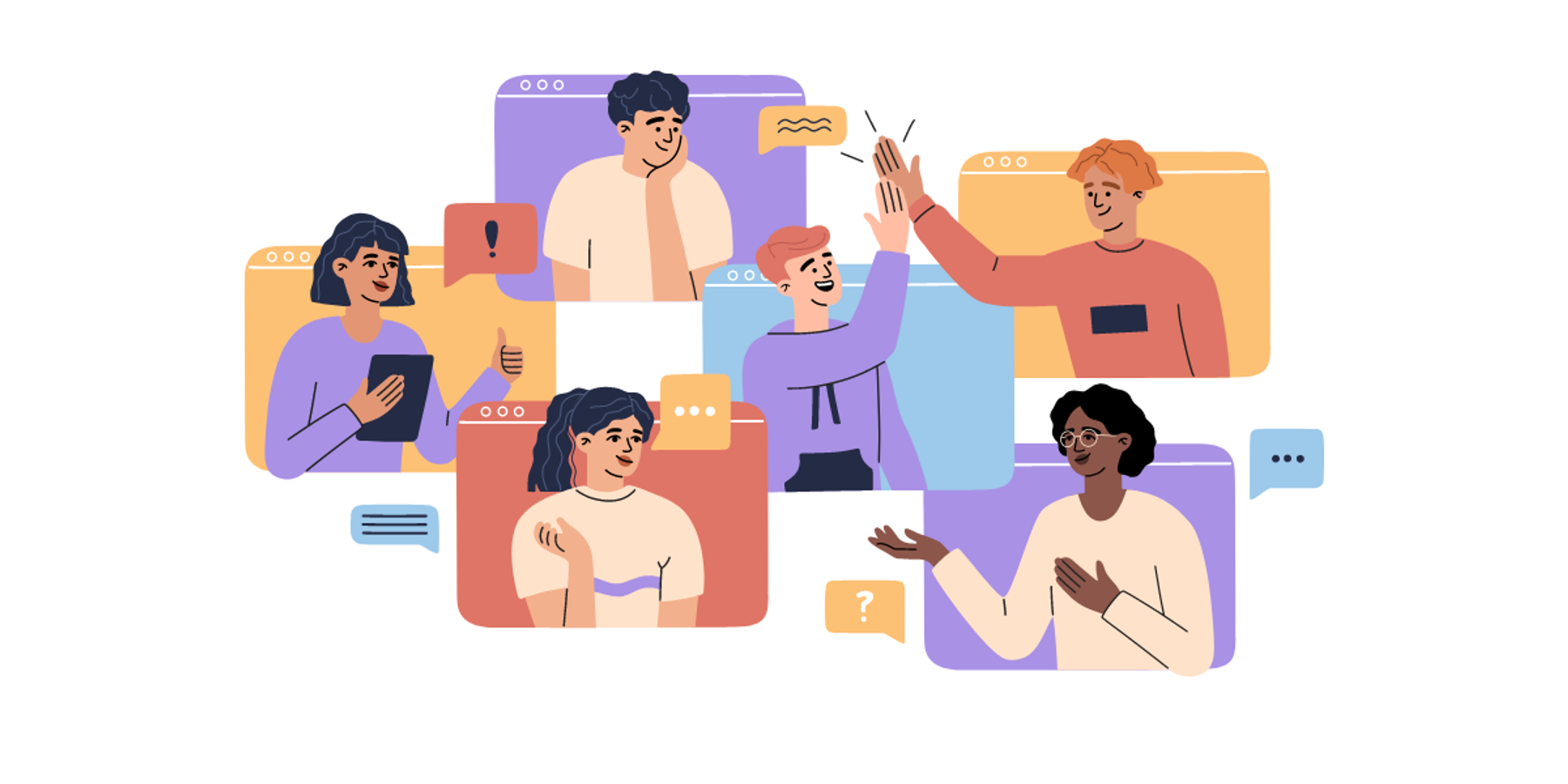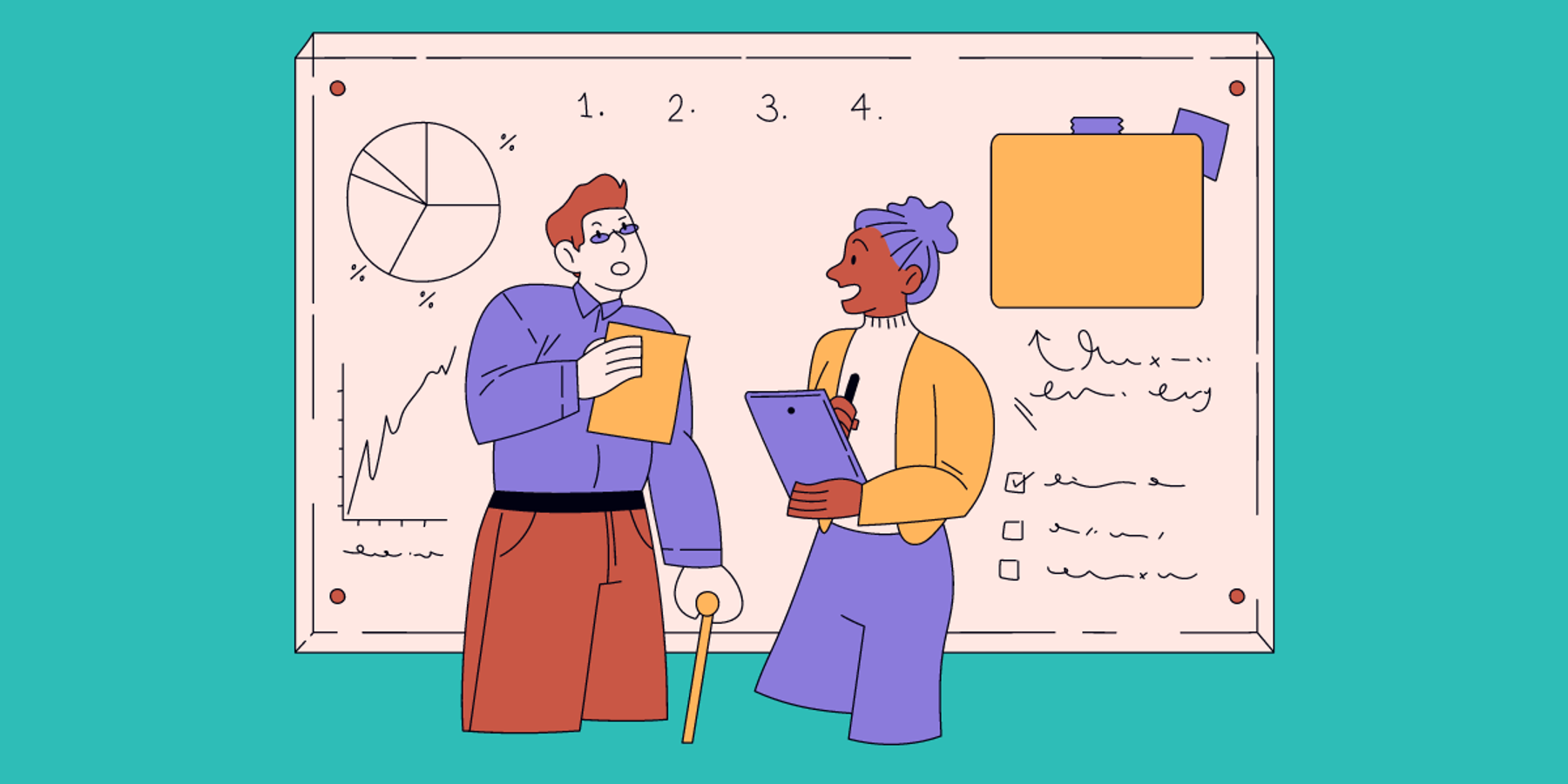After a brief hiatus, we're picking our series of diversity, equity, and inclusion (DEI) terms back up!
This month we're looking at different ways of addressing people with disabilities.
We'll give an overview of different terms' history and acceptance—like able bodied and disabled, as well as disabled or differently abled—and address the myth that there's only one "politically correct" term for disabled people or people with disabilities. (Spoiler alert: there's not, since just like past DEI terms we've covered such as BIPOC and Latinx, it's up to individual people from those communities to determine how they'd like to be addressed or described.)
Historical context on disability in the public sphere
Bear with me for a moment as we zoom back to cover the history of how disability has been perceived, treated, legislated, and addressed. People with disabilities have long faced the same kind of mistreatment as other out-groups, but the disability rights movement isn't enshrined in history books like similar movements for civil rights, women's rights, or gay rights. It's hard to dive into the minutiae of different terms without understanding just how far the world has come in how it sees disability—and just how far it has to go. Much of the below context is drawn from Minnesota's Council on Developmental Disabilities' in-depth archive and history project, "Parallels in Time: A History of Developmental Disabilities."
We'll start with the Roman empire, where people saw disability as a mark of divine wrath and laws stated that children with disabilities should be put to death.
It was a pretty big deal, then, when Jesus came on the scene and publicly spent time with people with disabilities and illnesses; some scholars credit Christianity with sparking more humane treatment of people with disabilities. In the Middle Ages, the Roman Catholic Church started asylums for certain communities, including abandoned infants and people with disabilities.
It wasn't until Elizabethan England that governments started to provide care for people living in poverty and with disabilities, and it took the French Revolution for society to accept the idea that humanity itself conferred dignity, and that people with disabilities deserved care and help, not ostracization and punishing conditions. It would be centuries until that actually happened, though.
While doctors and scientists began to study disability in the 19th century, the prevailing beliefs at the time—including belief in phrenology, or the idea that skull shapes determined human characteristics—were rudimentary at best, and objectively incorrect and damaging at worst.
The U.S. government began trying to track people with disabilities in the 1950s, when it included questions about "mental retardation" on the Census. Many local governments institutionalized people of all ages with all levels of disabilities in dehumanizing conditions. The first special education classes in the U.S. began in 1896.
In the early 20th century, people with disabilities were still largely mistreated in the U.S. Hitler's Germany targeted people with disabilities as part of its campaign of ethnic cleansing.
As social movements began to grow in the post-WWII economic boom and people had leisure time and more access to education, people started to organize around rights for those with disabilities. Parents' associations began to form in the 1950s and put public pressure on governments, and terminology began to shift from "retard," "moron," and other terms now understood to be extremely derogatory, to other still-problematic terms like "handicapped."
In 1962, President John F. Kennedy, whose sister Rosemary had "mental retardation," created a panel to study the subject. In 1970, Congress introduced the Developmental Disabilities Services and Facilities Construction Amendments, which were updated throughout the 1970s, 80s, and 90s to fund "comprehensive services for people with disabilities" in the U.S. In 1975, the U.N. adopted the Declaration on the Rights of Disabled Persons, centered on human dignity, civil and political rights, right to medical treatment, rights to participate in social activities, and more.
In the 1970s and 80s, the movement around people with disabilities focused on encouraging independent living, or the idea that people with disabilities could make decisions about their own lives and activities (versus that power lying with institutions or families).
In 1990, Congress passed the Americans with Disabilities act, the first sweeping legislation that addressed discrimination against people with disabilities in employment, public services, public accommodations, and telecommunications.
Now, central tenets of the disability rights movement include inclusive language (we'll get to that in a movement), a shift in seeing disability not as a deficiency but as a strength, and the acknowledgement that society and its barriers are the real disability.
Respectful language: is there a "politically-correct" term for disabled?
Over the last few decades, terminology used to describe people with disabilities has changed drastically, and there's not one single term or reference that "won" the debate. Even the predominant term I'm using here—people with disabilities—isn't universally accepted.
Here's some framing from a New York Times op-ed by Rosemarie Garland-Thomson, a founding director of the Disability Studies Initiative at Emory University:
When I lecture about disability, someone always wants to know — either defensively, earnestly or cluelessly — the "correct" way to refer to this new politicized identity. What we call ourselves can also be controversial. Different constituencies have vibrant debates about the politics of self-naming. "People first" language asserts that if we call ourselves "people with disabilities," we put our humanity first and consider our impairment a modification. Others claim disability pride by getting our identity right up front, making us "disabled people." Others, like many sign language users, reject the term "disability."
The old way of talking about disability as a curse, tragedy, misfortune or individual failing is no longer appropriate, but we are unsure about what more progressive, more polite, language to use. "Crippled," "handicapped" and "feebleminded" are outdated and derogatory. Many pre-Holocaust eugenic categories that were indicators for state-sponsored sterilization or extermination policies — "idiot," "moron," "imbecile" and even "mentally retarded" — have been discarded in favor of terms such as "developmentally delayed" or "intellectually disabled."
The U.S. tends to use "people with disabilities" and the UK tends to use "disabled people." Around the world, referring to people with disabilities as their medical diagnosis is inappropriate. For example, you should say "the woman with epilepsy" instead of "the epileptic" and "blind people" instead of "the blind". (Note that "blind people" is an example of identify-first language, instead of people-first constructions like "person who is blind"; I'm using that here because that's what the National Federation of the Blind prefers. Also note that the NFB breaks the "rule" of not using "the" + a disability to describe a group of people with that disability in their very name. See how important it is to listen to individuals and communities as to how they'd like to be referenced versus relying on a set of guidelines?)
For more information on how to center accessibility and inclusion for people with disabilities, check out our course on Disability in the Workplace on PowerUp.
A brief and not-exclusive glossary of terms related to disability
The golden rule of writing about disability or addressing people with disabilities is to ask individuals how they prefer to be addressed. But when you can't ask individuals, here are some terms to understand and to decide between, drawn from resources from the American Psychological Association and the National Center on Disability and Journalism:
Terms to use:
Person with (impairment): This structure describes the person and their functioning, rather than reducing them to their diagnosis.
Person with disability, or disabled person: Generally the best ways to refer to people who have physical or mental impairments that "substantially limit one or more major life activities."
Terms to avoid:
Able-bodied: Describes someone who doesn't identify as having a disability. It implies that people with disabilities lack "able bodies," though, which many people take offense at.
Afflicted with: Suggests that a person with a disability is suffering.
Crazy, insane, psycho: Offensive terms to refer to mental health.
Differently abled: Previously touted as an alternative to "disabled," which means "not abled" and thus suggests people who are disabled lack an ability to live their lives. It's now considered a condescending way to discuss disability, or worse, a way to avoid addressing it altogether. After all, we're all differently abled.
Suffers from: Suggests that people with disabilities have overall lower-quality lives.
For more guidelines on what to use and to avoid based on specific disabilities, review the NCDJ's style guide.
-----
And for suggestions on what terms you'd like us to cover next, send us a note at hi@powertofly.com.




